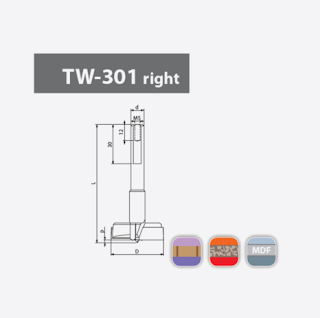An Extensive Guide One Needs To Have About Cold Saw
A Cold Saw will make many cuts with precision and speed—while prepared with the right blade for the application. Cold Saw blades range in thickness, width, duration, and enamel configuration, and length varies throughout the machine. However, the duration of your saw's wheels typically determines thickness and width.
Blades frequently come within the four enamel configurations verified above. And the variety of enamel in step with inch subjects also, because of the huge gullets the gap amongst enamel allows better debris removal; but more cautiously spaced enamel deliver a smoother cut.
Types And Other Details Regarding Cold
Saw:
- Regular enamel of Bore
Drill Bits is the most common type. They have right away
faced tooth, which is probably calmly spaced, and deep gullets. Most
regular-tooth bandsaw blades have a right away or 0° rake. Regular-enamel
bandsaw blades are used for significant reasons slicing in thin material –
cutoff and contour sawing. They can be used to lessen the most significant
metals and wood.
- Hook bandsaw blades have a deep gullet with a big
tooth that may be considerably spaced. Often they function as an undercut
face with an awesome 10° rake angle. These can be used to make faster,
more coarse cuts through and big in plastic, metal, thicker wood pieces,
or hardwoods.
- Skip-enamel Boring Bits have a shallow gullet and extensively spaced enamel. They commonly have 90° enamel and 0° rake. The sharp mindset at the enamel gullet lets the chips come out cleanly. Skip-bandsaw blades are used for plenty of woodworking applications, especially when you need to reduce clogging or use a cloth like softwoods, plastics, or nonferrous metals that would gum up the blade.
Conclusion:
Cold saws are not very unusual to be
bought, and many people require a cold saw for distinctive kinds of on-hand
work. There are distinctive kinds of such blades out there. Here in this
article, we mentioned several of those kinds in detail.


Comments
Post a Comment